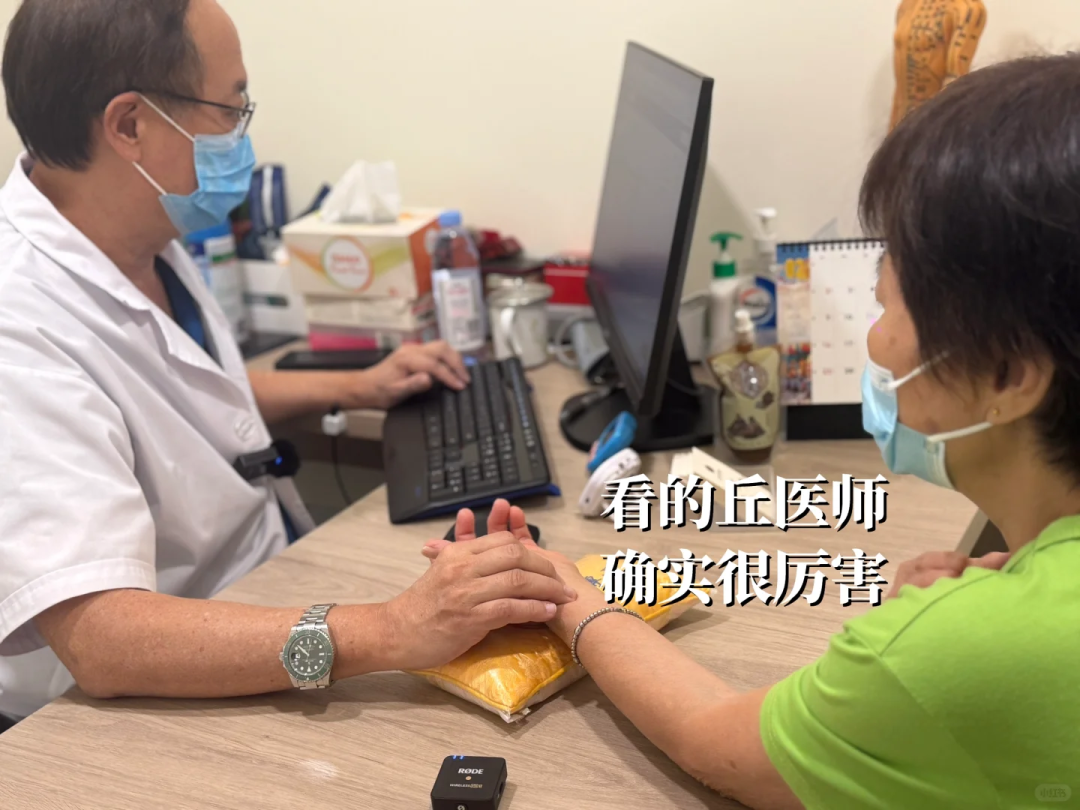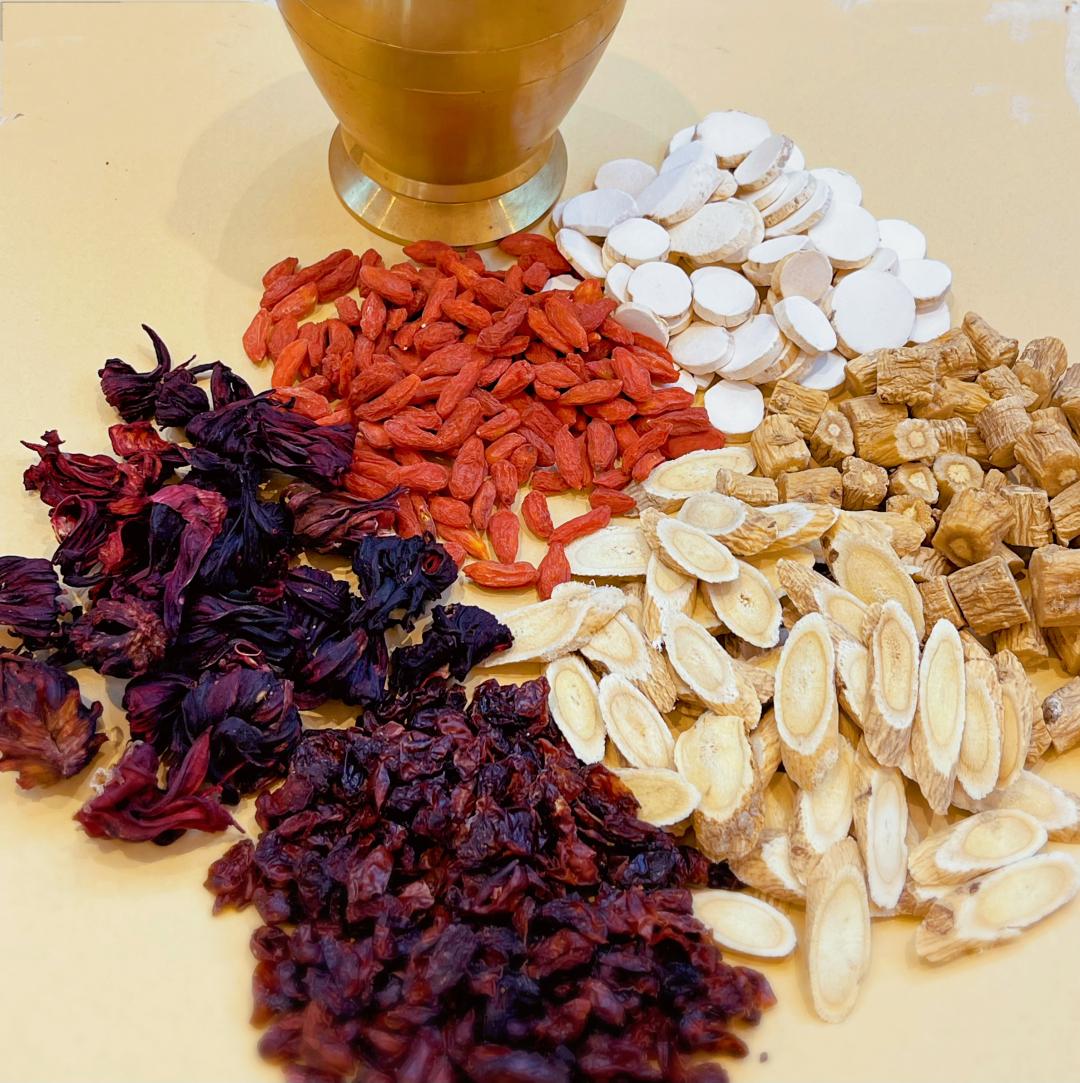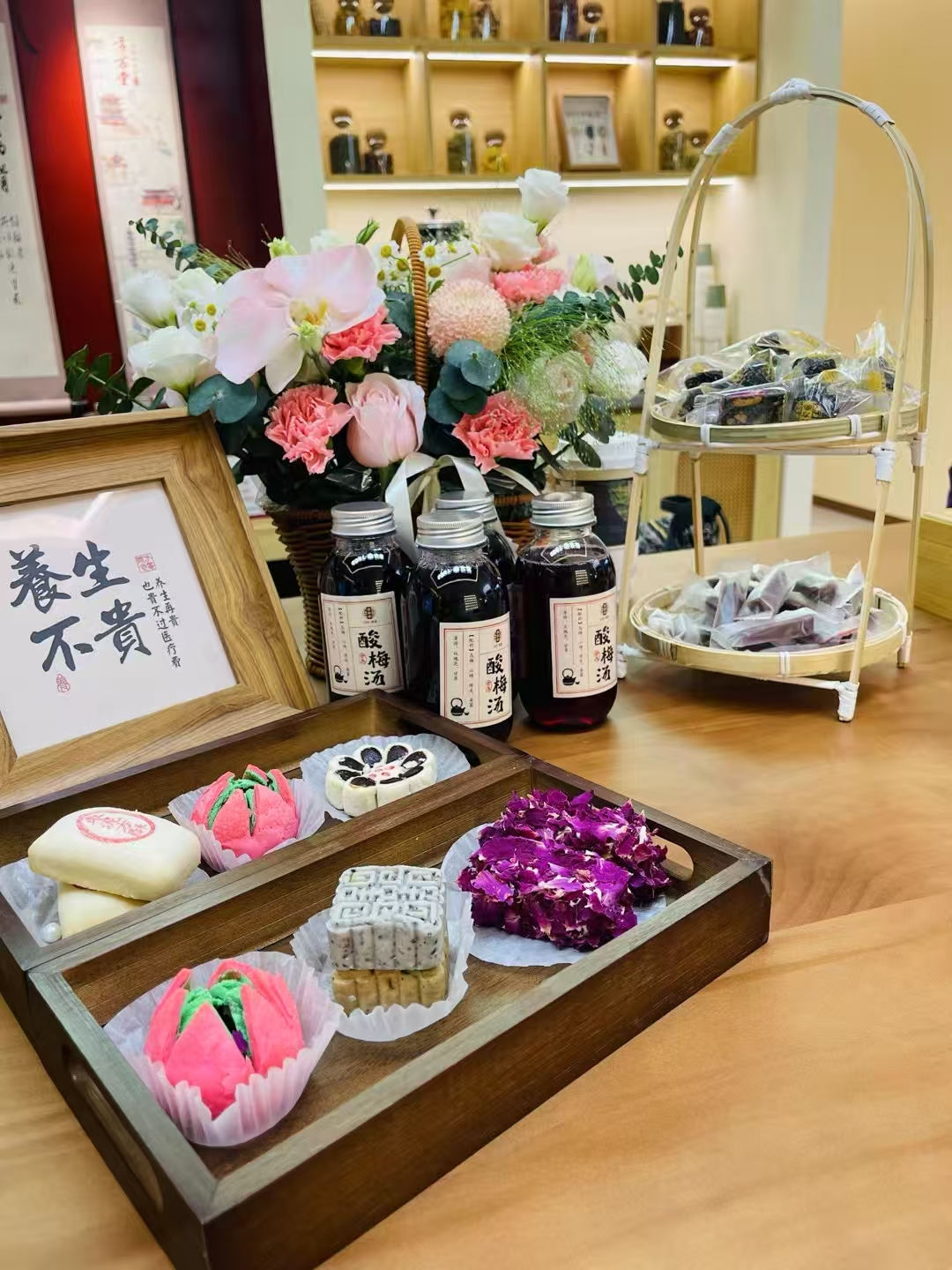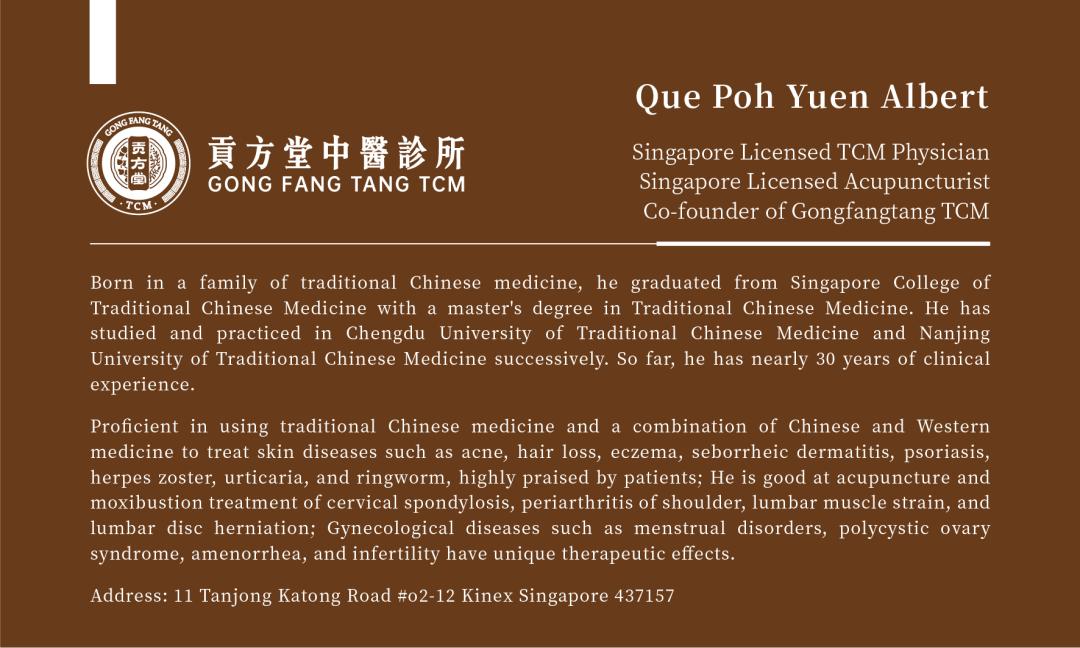- Physicians
- Clinics
- TCM
- Western GP
-
Fees
-
Deals & Privileges
- About & Resources
- Contact Us
Menopause is a natural phase that every woman inevitably experiences, during which most individuals may encounter symptoms such as hot flashes, night sweats, insomnia, palpitations, and emotional fluctuations. Some may feel fearful while others resist the idea, perceiving menopause as symbolic of aging and initially finding it difficult to accept. TCM practitioner Qiu Baorun from Singapore's Gongfangtang specializes in clinically managing menopausal symptoms, advocating a treatment philosophy of "addressing kidney function as the foundation while harmonizing the heart, liver, and spleen systems."

Identify Your Menopausal Syndrome Type
I. Kidney Yin Deficiency (Heat Flashes & Night Sweats Type)
Common symptoms: Afternoon heat surges resembling "steaming," drenching night sweats, irritability, insomnia, sore lower back and knees, red tongue with scant coating.
Dr. Qiu’s treatment: Nourish Yin and reduce fire, often using modified Zhibai Dihuang Wan (Anemarrhena, Phellodendron, and Rehmannia Pill):
Zhimu (Anemarrhena asphodeloides) and Huangbai (Phellodendron chinense) to clear deficient heat.
Shudihuang (Rehmannia glutinosa) and Shanzhuyu (Cornus officinalis) to nourish Kidney Yin.
Baihe (Lilium brownii) and Maidong (Ophiopogon japonicus) to moisten the lungs and calm the heart.
Yejiaoteng (Polygonum multiflorum vine) and Suanzaoren (Ziziphus spinosa) to soothe the mind and improve sleep.
II. Kidney Yang Deficiency (Cold Intolerance & Loose Stools Type)
Key manifestations: Excessive sensitivity to cold, cold pain in the lower back, delayed/scanty pale menstrual flow, loose stools, pale tongue with white coating.
Dr. Qiu’s formula: Modified Yougui Wan (Right-Restoring Pill) combined with Guipi Tang (Spleen-Returning Decoction):
Fuzi (Aconitum carmichaelii) and Rougui (Cinnamomum cassia) to warm Kidney Yang.
Dangshen (Codonopsis pilosula), Huangqi (Astragalus propinquus), and Baizhu (Atractylodes macrocephala) to strengthen the spleen and boost Qi.
Danggui (Angelica sinensis) and Yuanzhi (Polygala tenuifolia) to nourish blood and calm the spirit.
III. Dual Deficiency of Yin & Yang (Alternating Hot/Cold Type)
Typical features: Sudden heat surges with sweating alternating with chills, significant mood swings, irregular menstruation, pale-red tongue with thin coating.
Dr. Qiu’s harmonizing approach: Modified Erxian Tang (Two Immortals Decoction):
Xianmao (Curculigo orchioides) and Xianlingpi (Epimedium brevicornu) to warm Kidney Yang.
Zhimu and Huangbai to purge deficient fire.
Bajitian (Morinda officinalis) and Nüzhenzi (Ligustrum lucidum) to balance Yin and Yang.
Chaihu (Bupleurum chinense) and Yujin (Curcuma aromatica) to soothe liver stagnation (common in menopause).

External Therapies & Dietary Support
Acupuncture for Mind-Body Regulation:
Key acupoints:
Sanyinjiao (SP6) – Strengthen the spleen and nourish blood.
Taixi (KI3) – Nourish Kidney Yin.
Shenmen (HT7) – Calm the spirit and stabilize the mind.
Modifications:
For Yang deficiency: Add moxibustion at Guanyuan (CV4) to warm Yang.
For Yin deficiency: Apply massage to Yongquan (KI1) to guide fire downward.
Herbal Tea Formulas:
For Yin Deficiency:
Steep 6g Dendrobium (Shihu) + 5g Ophiopogon (Maidong) + 3g Rose Buds (Meiguihua) in hot water.
For Yang Deficiency:
Simmer 5g Astragalus (Huangqi) + 3 pieces Longan (Longyanrou) + 2g Citrus Peel (Chenpi).

Case Study
Patient: Ms. Zou, 46 years old.
Chief Complaint: Experiencing sudden heat flashes with sweating, irritability, and recurrent daily episodes over the past six months without obvious triggers, accompanied by dry mouth, constipation, and poor sleep.
Pattern Differentiation: Menopausal syndrome (Blood Deficiency with Liver Heat).
Treatment Principle: Nourish blood and clear heat.
Prescription: Modified Huanglian Siwu Tang (Coptis & Scutellaria Four Substances Decoction):
Huangqin (Scutellaria baicalensis) 10g
Huanglian (Coptis chinensis) 6g
Danggui (Angelica sinensis) 12g
Baishao (Paeonia lactiflora) 10g
Chuanxiong (Ligusticum striatum) 10g
Shengdihuang (Rehmannia glutinosa) 10g
Shudihuang (Rehmannia glutinosa preparata) 10g
Sangye (Morus alba leaf) 15g
Juhua (Chrysanthemum morifolium) 10g
Nüzhenzi (Ligustrum lucidum) 15g
Hanliancao (Eclipta prostrata) 15g
Shengmuli (Ostrea gigas) 10g
Wuweizi (Schisandra chinensis) 10g
Suanzaoren (Ziziphus spinosa) 15g
Baiziren (Platycladus orientalis seed) 5g
Preparation: 7 doses, decocted in water and taken twice daily, morning and evening.
Follow-Up: After taking the formula for over two months, all symptoms resolved. The patient requested a consolidation prescription and was given an additional 6 doses.
"Menopause is a woman’s second phase of growth," emphasized Dr. Qiu. He noted that the adjustment period typically spans 2-3 months, requiring patience. For persistent menstrual irregularities, severe insomnia, or depressive moods, he advises prompt medical consultation. Through a combined approach of herbal medicine, acupuncture, and emotional support, most patients experience reduced hot flashes within 1 month and significant improvements in sleep and mood by 3 months.

TCM emphasizes pattern differentiation and personalized treatment. Each individual requires a tailored formula, and the selection, dosage, and modifications of herbs must be guided by a licensed TCM practitioner based on syndrome differentiation. Self-medication without professional guidance is strongly discouraged.